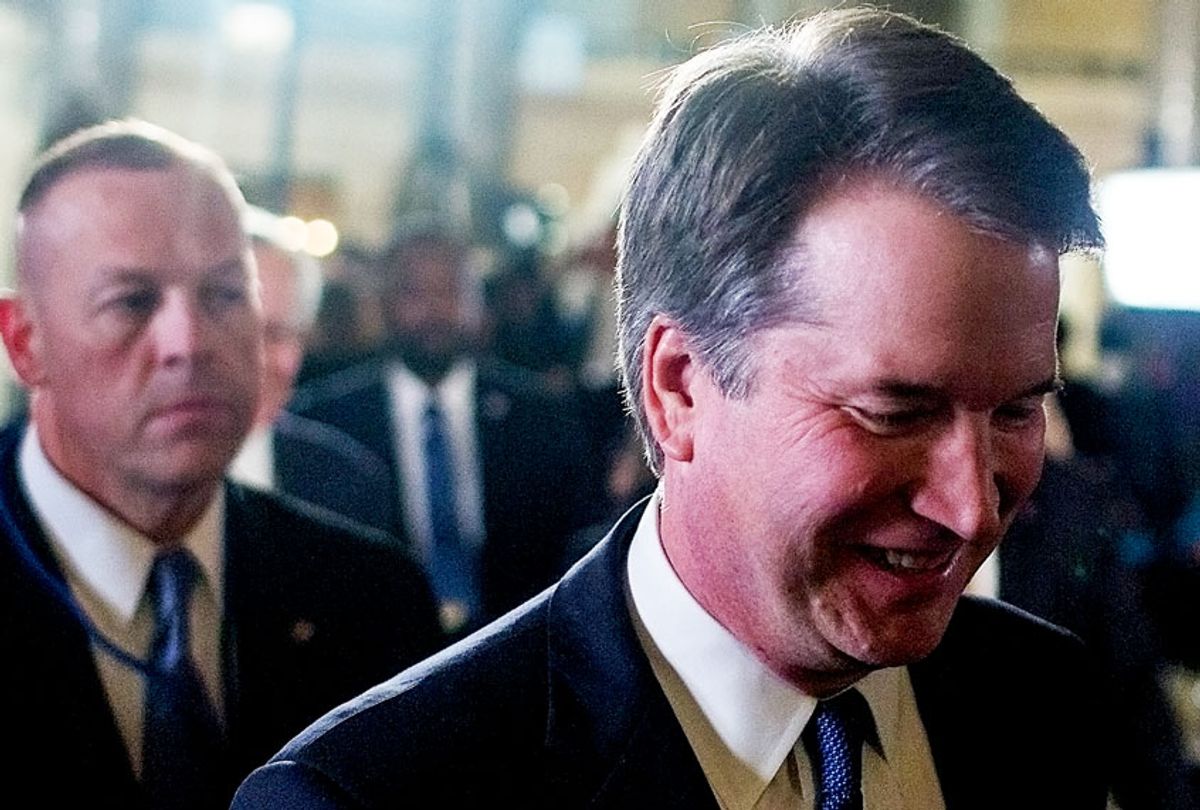When Brett Kavanaugh was confirmed by the GOP-controlled U.S. Senate in 2018 and sworn in as a U.S. Supreme Court justice, Democrats feared that he would be very sympathetic to President Donald Trump's agenda — more so than former Justice Anthony Kennedy, the right-wing libertarian he replaced. But Joan Biskupic, a CNN legal analyst, is reporting that according to "multiple sources," Kavanaugh "urged his colleagues in a series of private memos this spring to consider avoiding decisions in major disputes over abortion and Democratic subpoenas for President Donald Trump's financial records."
In June Medical Services v. Russo, the Supreme Court recently struck down an anti-abortion law in Louisiana. Biskupic reports that Kavanaugh wanted the Court to "sidestep" the June Medical case — and his "plan would have ensured the law — a credentialing mandate for doctors who perform abortions — would not go into immediate effect, but also ensured that the justices would not have to put their own views on the line."
Similarly, Biskupic notes, the 55-year-old Kavanaugh wanted the High Court to "avoid the subpoena fight over Trump financial documents, based on the judicial principle that courts should stay out of cases involving fundamentally political questions."
"Throughout the recent Court session, as Kavanaugh revealed a desire to avoid certain thorny dilemmas, the newest justice also demonstrated a pattern of trying to publicly appeal to both sides," Biskupic notes. "His style of accommodation was on display in recent disputes over gay and transgender workers and, separately, undocumented immigrants who came to the U.S. as children."
According to Biskupic, the memos indicate that Kavanaugh was worried about being perceived as a pro-Trump ideologue.
"In 2018, Trump chose Kavanaugh to succeed Kennedy, convinced by advisers that the (George W.) Bush loyalist would be true to Trump and his brand of conservatism," Biskupic explains. "Kavanaugh has not turned his back on the politicians who guaranteed his High Court ascension, but his writing has suggested he does not want to appear to be a reflexive conservative vote — particularly against women."
Regardless, Kavanaugh was among the four dissenters in June Medical and did not find Louisiana's anti-abortion law to be unconstitutional; the other dissenters were Justice Clarence Thomas, Justice Samuel Alito and Justice Neil Gorsuch.




Shares